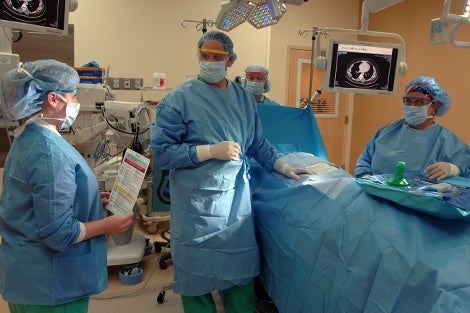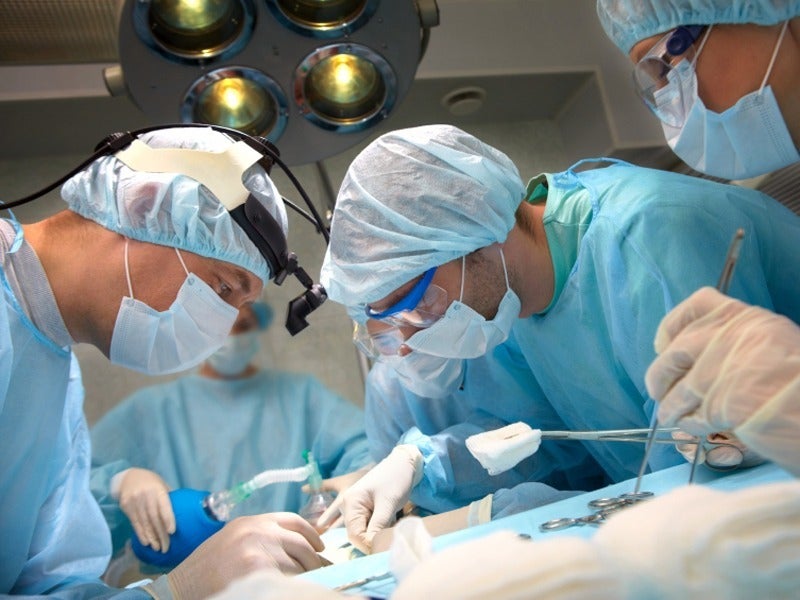New issue of Harvard Public Health Review focuses on global health
For many years, experts seeking to quantify the “global burden of disease”—delineating what ails people, when, and where—failed to account for how lack of access to surgery fits into the picture. But in the April 2015 issue of…
A call for more access to surgery worldwide
Two-thirds of the world’s population—about five billion people—have no access to safe and affordable surgery, according to The Lancet Commission on Global Surgery. In an April 26, 2015 Lancet article, Atul Gawande of Harvard T.H. Chan School of…
Surgical complications are top reason for hospital readmissions
Problems related to surgery—mostly from surgical wound infections—are the most common reason that people wind up readmitted to the hospital, according to a new study. Patient safety expert Lucian Leape says such complications are a significant problem that…
Developing better ways to measure hospital safety
As part of the Affordable Care Act, hospitals with high rates of adverse events among patients—such as hospital-acquired infections, medication errors, or surgical mishaps—are now subject to penalty from the Centers for Medicare & Medicaid Services (CMS). Under…
Prostate cancer: surgery vs. watchful waiting
For immediate release: Wednesday, March 5, 2014 Boston, MA -- More than 230,000 men will be diagnosed with prostate cancer this year in the United States, but determining their course of treatment remains a source of considerable debate.…

Hospital readmission rates linked with quality of surgical care
For immediate release: Wednesday, September 18, 2013 Boston, MA — Reducing hospital readmission rates is an important clinical and policy priority but whether those rates really measure the quality of hospital care isn’t clear. In a new study,…

Patients with surgical complications provide greater hospital profit-margins
For immediate release: April 16, 2013 Boston, MA -- Privately insured surgical patients who had a complication provided hospitals with a 330% higher profit margin than those without a complication, according to new research from Ariadne Labs, a…

Surgical safety checklist, paired with training, lowers complications after high-risk operations
February 7, 2013 -- Research has shown that using a checklist in operating rooms makes surgery safer and more successful. Now, a new study co-authored by Harvard School of Public Health (HSPH) student and surgeon Scott Ellner found…

Checklists in operating rooms improve performance during crises
Teams using checklists were 74 percent less likely to miss key life-saving steps in care during emergency situations than those working from memory alone. For immediate release: Wednesday, January 16, 2013 Boston, MA — In an airplane crisis—an engine…

Little lists, big impact
[ Winter 2013 ] If health care workers use simple checklists during critical moments of care such as surgery and childbirth, they can greatly reduce death and complications among their patients. In study after study, Atul Gawande, professor of health…
